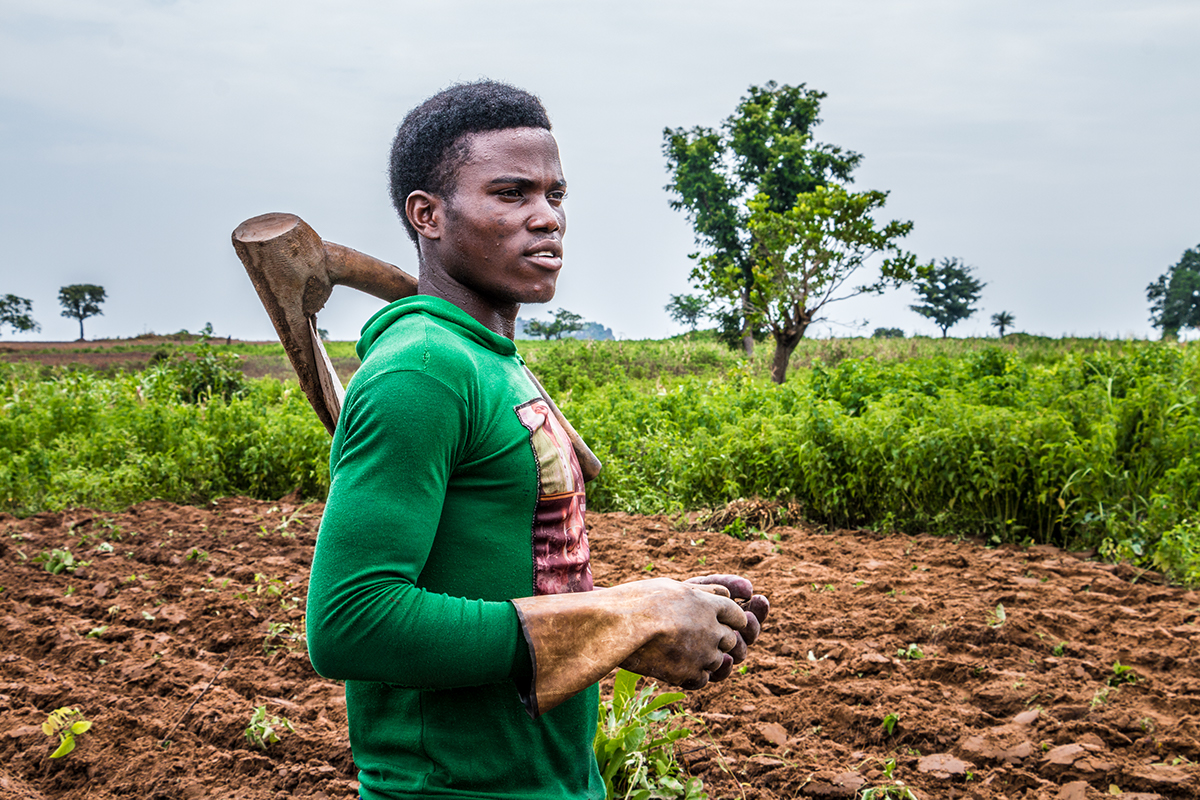Keeping young Nigerians connected to the land, their roots, and culture, while creating wealth and meaning is what UNYFAC strives for. There are plenty of agriculture-based businesses that let youth thrive without running off to the cities — and even, more importantly, become culture-keepers and innovators at the same time.
Here are some solid Agric businesses Nigerian youths can engage in that are culturally rooted and profitable, especially in rural or semi-rural settings:
🌾 1. Indigenous Crop Farming
Grow native or culturally significant crops that are in demand:
- Yam, cassava, millet, sorghum, maize, egusi, okra, fluted pumpkin (ugu).
- Specialty crops like fonio (acha), Abakaleke and ofada rice, or bitter leaf for export or niche urban markets.
🪶 Cultural link: These are traditional foods used in everything from ancestral festivals to everyday meals.
🧃 2. Processing Traditional Foods
Instead of just selling raw farm produce, process and brand them:
- Garri, fufu, ogi (pap), palm oil, groundnut oil, yam flour (elubo), dried vegetables.
- Package them attractively and target local and diaspora markets.
🪶 Cultural link: Food is memory. These processed foods preserve taste and heritage while adding value.
🧑🏾🌾 3. Agro-Tourism & Cultural Farming Villages
Turn a farm into a cultural destination:
- Teach tourists or schoolchildren about native farming methods, folklore, and food.
- Include storytelling, drumming, local meals, and traditional housing.
🪶 Cultural link: This makes farming an experience that celebrates heritage.
🧺 4. Herbal & Medicinal Plant Farming
Cultivate and package traditional herbs:
- Scent leaf, neem, bitter leaf, moringa, uziza, zobo (hibiscus), lemongrass, African basil.
- Sell them fresh, dried, or in tea, oil, or powder form.
🪶 Cultural link: Taps into indigenous healing systems and wellness practices.
🥘 5. Farm-to-Table Local Food Business
Run a small eatery or catering biz that uses only local, farm-fresh produce:
- Offer native soups, swallow, roasted yam and palm oil, local drinks (kunu, zobo, palm wine).
- You grow what you cook = total cultural and economic control.
🪶 Cultural link: Showcases native food ways and revives pride in traditional diets.
🐓 6. Local Livestock Rearing
- Goat, ram, snail, poultry (especially native chicken breeds), and rabbits.
- Breed native species that are hardier and culturally symbolic (e.g. ram for cultural festivals, goat for traditional weddings).
🪶 Cultural link: Animal rearing has deep ties to rites of passage, celebrations, and traditional economies.
🧵 7. Crafts from the Farm
- Use agricultural by-products to make woven baskets, mats, calabashes, brooms, traditional hats, pottery, or natural dyes.
- Sell to tourists or city markets looking for “authentic African” items.
🪶 Cultural link: Farming and craft-making often go hand-in-hand in village life.
🌍 8. Cultural Farming Education / Youth Training
Set up training programs where you teach farming skills mixed with cultural knowledge:
- Offer lessons on farming the way the ancestors did — with respect for the land.
- Combine modern organic methods with folklore, history, and local language.
🪶 Cultural link: This turns youth into custodians of heritage.
💡 Bonus: Combine Culture + Content Creation
A young person can farm AND document it:
- Start a YouTube channel or TikTok showing how traditional farming is done — mix it with music, storytelling, native language.
- Teach people about crops like yam or egusi in fun ways.
🪶 Cultural link: Digital griots. Preserving culture with tech.
The above are some of the paths UNYFAC will proactively promote and pursue for Nigerian youths
SOURCE: UnyfacJournal
IMAGE: Behance










